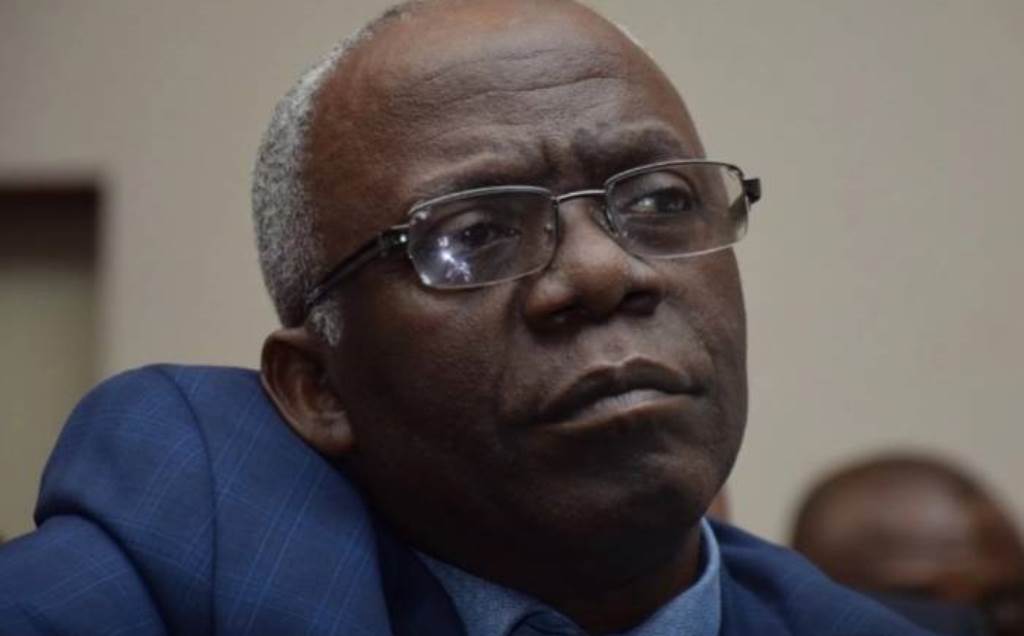A senior Nigerian lawyer, Femi Falana, has threatened to go to court if the Muhammadu Buhari administration goes ahead to allocate oil blocks to private individuals and corporate bodies.
Falana said such allocations are a gross violation of the fundamental rights of the Nigerian masses to freedom from discrimination and equal right of access to public property.
His threat was contained in a letter to the president, dated March 20.
In the letter titled, “Request to Stop Allocating Oil Blocks to Private Individuals and Corporate Bodies”, the lawyer also warned the president to restrict the allocation of oil blocks including marginal fields to the Federal Government and the governments of the 36 states of the Federation.
Read the full text of the letter below:
March 20, 2019
Alhaji Mohammed Buhari,
President & Commander-in-Chief of the Armed Forces,
Presidential Villa,
Aso Rock,
Abuja.
Your Excellency,
REQUEST TO STOP ALLOCATING OIL BLOCKS TO PRIVATE INDIVIDUALS AND CORPORATE BODIES
Our attention has been drawn to the decision of the Federal Government to revoke a number of oil blocks and marginal fields hitherto allocated to a few individuals as well as local and foreign corporate bodies by former military and civilian regimes in Nigeria.
While commending Your Excellency for the courageous decision we urge the Federal government to desist from renewing the remaining licenses of other oil block owners in the country. Having acquired the “entire property in and control or all minerals, mineral oils and natural gas in, under or upon any land in Nigeria or in, under or upon the territorial waters” and vested same in the Federal Government on behalf of the people of Nigeria pursuant to section 44(3) of the Constitution it is inequitable, illegal and unconstitutional to allocate the nation’s oil blocks to a few individuals and corporate bodies including multinational corporations.
Your Excellency may no doubt be aware that majority of the owners of the oil blocks belonging to the Nigerian people usually sub-lease them to offshore companies as they lack the fund and the technical expertise to develop the oil and gas industry. By merely collecting huge rents the oil block owners become stupendously rich while the federal, state and local governments depend on loans and bailout to pay salaries and carry out basic infrastructural development of the country. Thus, by allocating oil blocks to a few individuals and corporate bodies the Federal Government has violated Section 16(2) (c) of the Constitution which provides that “the economic system is not operated in such a manner as to permit the concentration of wealth or the means of production and exchange in the hands of few individuals or of a group.”
Furthermore, the allocation of oil blocks to a few individuals and corporate bodies by the Federal Government constitutes a gross violation of the fundamental rights of the Nigerian people to freedom from discrimination, equal right of access to public property and in the equal enjoyment of the common heritage of mankind as well as the right to social, economic and cultural development guaranteed by articles 2, 13, 22 of the African Charter on Human and Peoples Rights (Ratification and Enforcement) Act. Therefore, pursuant to article 22 thereof which has imposed a duty on the Federal Government to freely dispose of the wealth and national resources of the nation in the exclusive interests of the Nigerian people we urge Your Excellency to desist from allocating oil and blocks to a select group of Nigerians and foreigners.
In view of the foregoing, we urge Your Excellency to restrict the allocation of oil blocks including marginal fields to the Federal Government and the governments of the 36 states of the Federation. This request is in line with section 16 (1) (b) of the Constitution which has mandated the Nigerian State to “control the national economy in such manner as to secure the maximum welfare, freedom and happiness of every citizen on the basis of social justice and equality of status and opportunity.”
TAKE NOTICE: that if the Federal Government refuses to accede to our request we shall be compelled to challenge the constitutional validity of allocating the oil blocks and other natural resources collectively owned by the Nigerian people but vested in the Federal Government to a few private individuals and corporate bodies.
Please accept the assurances of our highest esteem.
Yours sincerely,
FEMI FALANA, SAN, FCI Arb.
